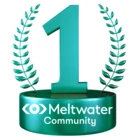You can lead a team to data, but you can’t make them listen… at least, not without a little strategy.
You can share all the data you want, but chances are, you’re not making the most of it. I understand. When you’re bombarded with numbers and ROI calculations, it’s hard to decipher what this information means, let alone use that information to inform and update your strategy.
With social listening, for example, it’s likely that a team only sees hashtags and sentiment scores. The data is important, but the underlying meaning is often overlooked. Social listening is so much more than what’s at the surface. It’s how the world is talking about you, your competitors, your industry, and your future.
Be honest: Is your team effectively transforming your strategy, using the insights you have?
How do your colleagues view social listening? Do they see it as “just a cool tool for marketing”? Or, are they able to connect the dots, refine strategy, and maximize their impact? If it’s not the latter, it’s time for a little organizational re-education.
Here are 5 ways you can teach your team to really care about social listening (and do something about it).
Start with a spicy stat
Most people won’t care about social listening until they see how it ties into their own priorities. When I first started educating my team, I didn’t lead with reports. I led with drama. One stat showed customers jumping ship to a competitor. Turns out, it was actually the competitor–masquerading as users on Reddit to derail our threads and boost their own product. Quel drama!
If you want your team to care, show them how social listening insights expose what customers are thinking IRL (we know it’s different from what they’d say in a survey), what competitors are pushing, and what content is actually sparking conversations. Forget awareness, and focus on relevance.
Keep your reports snackable, not stackable
No one wants to read a 10-slide deck on hashtag performance. Sure, sometimes that is what the client asks for. With your team: get to the point.
My team has a Slack channel for industry news, and when I come across insights or stories that are particularly juicy, I drop a summary and link in the channel. Maybe it’s an emerging competitor move, a pain point, or an industry story that makes me question the phrase, “all press is good press.” If you’re about to hit send on a paragraph that requires you to scroll, think again.
Create the map
It takes practice to be able to transform insights into actions. As the go-to in this domain, you’re responsible for creating the game plan. While your team may love insights, you can trust that they’ll move on clear, actionable instructions.
When developing a report or overview, make sure to address the people thinking: “So what?” Share your thoughts: is this a comms moment, an opportunity for a product improvement, or a trend to jump on before it gets stale? In marketing, there’s no time for loitering. Share detailed instructions to move forward, not just to listen.
Make it a team sport
Social listening isn’t strictly for marketing. Sales wants buyer objections, product wants feature feedback, and leadership wants brand love (or crisis warnings). Tailor your reports to the specific person or team at hand. One-size-fits-all reports do not cut it.
On a similar note: If you hear about a project a team member is working on, and you see how a quick social listening pull could help them out, pitch it. Offer to pull company mentions for a brand revamp, trends for a campaign brainstorm, or sentiment for a pitch deck.
You could even say: “Hey, you mentioned a super interesting, emerging trend in the team meeting. It turns out, nobody is writing about this yet. You should write your next thought leadership article on it.” It’s that simple. This is how you get your team curious about what social listening can do for them, and educated on how far the capabilities go.
Keep receipts
Track what changed because you listened. If you tweaked messaging after a Reddit thread blew up or beat a competitor to a trend, you better be documenting it. When these moments are celebrated, and social listening becomes the hero, you’ll notice that your team will really start to get it.
With every project, ensure you have proper processes documented. Show your work–if you make a recommendation to alter campaign messaging, explain what insights guided you to reach this conclusion. Share why the updated messaging should improve your performance, and back it up with research.
Social listening only works if people are paying attention to what the insights are telling them. If you want your team to care (and act like it), show them what’s at stake, what’s possible, and what’s already working.
Overall, you’re just educating your team members using easy-to-understand, bite-sized snippets of information. Educating and supporting your team go hand in hand. When you offer your own skills and knowledge, you’re planting the seed. Give it some sunshine, a little water. Soon enough, you’ll see your efforts in bloom.






